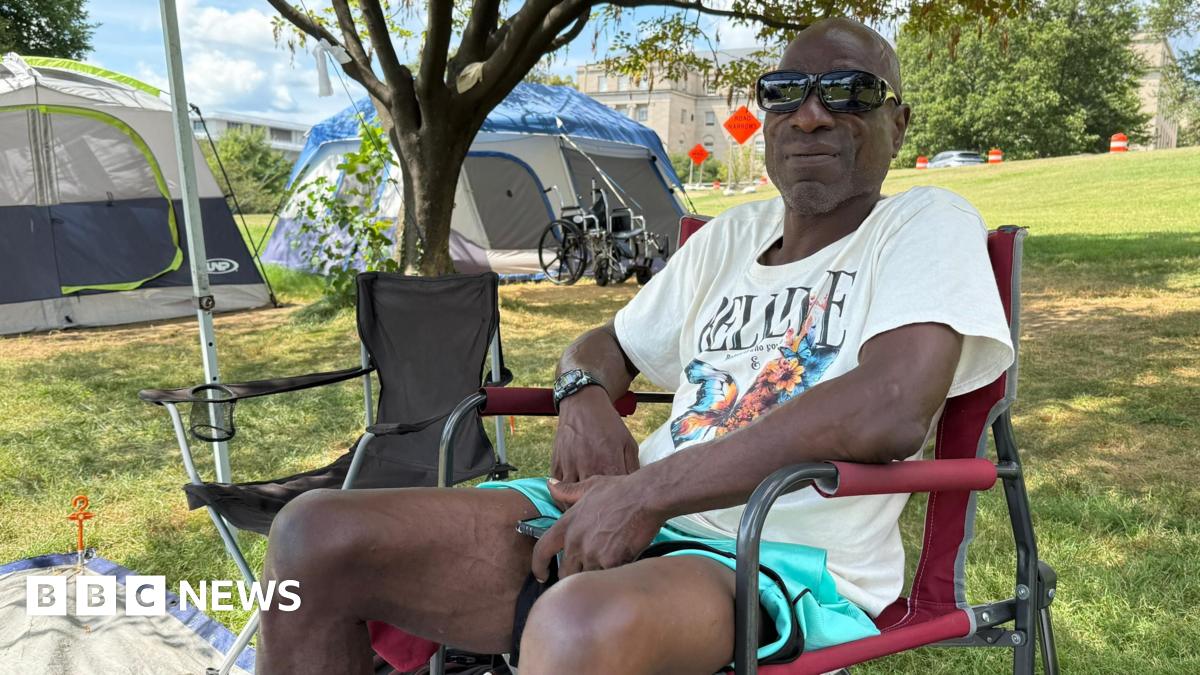DC's largest homeless encampment was destroyed after the president called for a crackdown. What happened to its residents?
Why it matters
- The dismantling of the encampment reflects broader issues of homelessness in urban areas.
- The federal government's involvement raises questions about local autonomy and the allocation of resources for social services.
- Displaced residents face uncertainty regarding their immediate future, highlighting the need for comprehensive support systems.
In a significant development in the ongoing conversation about homelessness in Washington, D.C., the city's largest homeless encampment was recently dismantled following a directive from the Biden administration. This crackdown, aimed at addressing the visible plight of the homeless population, has left many individuals without a stable place to stay and raised urgent questions about the future of those affected.
The encampment, located near the National Mall, had become a focal point for advocates and politicians alike. For months, it served as a temporary refuge for over 300 individuals who had taken shelter in tents and makeshift structures, seeking solace amidst the challenges of homelessness. However, under increasing pressure from federal authorities, local officials initiated a cleanup operation that concluded with the removal of the encampment earlier this week.
Residents of the encampment were given limited notice before the operation commenced. Many were forced to pack their belongings hastily, leading to chaos and distress among those who had already faced significant hardships. The sudden nature of the eviction left numerous individuals struggling to find alternative accommodations, with shelters already operating at capacity and many unable to access necessary social services.
Advocates for the homeless have voiced their concerns regarding the decision to dismantle the encampment without adequate plans for the residents' relocation. They argue that the lack of preparation exacerbates the ongoing crisis, as many displaced individuals were already vulnerable, often dealing with issues such as mental health challenges, substance abuse, and unemployment. Critics of the cleanup have called for a more humane approach to homelessness that prioritizes long-term solutions rather than punitive measures.
In the aftermath of the eviction, some residents have reported being directed to nearby shelters, while others have turned to friends or family for temporary housing. Many, however, remain on the streets, unsure of where to seek assistance. The city's existing shelter system has been overwhelmed, particularly as the colder months approach, raising concerns about the safety and well-being of those left without a roof over their heads.
The federal government's involvement in local homelessness issues is a double-edged sword. While some see it as a necessary intervention to address a growing crisis, others fear it undermines local efforts to manage the situation effectively. The encampment's dismantling has sparked a heated debate about the responsibilities of city officials versus federal authorities in addressing homelessness.
Moreover, the situation has ignited discussions about the broader implications of homelessness in urban areas across the United States. Many cities are grappling with similar challenges, where visible encampments have become a point of contention among residents and policymakers. The response to such crises often reveals deep-seated societal issues regarding poverty, mental health, and resource allocation.
As the displaced residents navigate their uncertain futures, advocacy groups are pushing for more comprehensive support systems that address the root causes of homelessness. This includes calls for increased funding for mental health services, affordable housing initiatives, and job training programs aimed at helping individuals regain stability in their lives.
The recent events in D.C. serve as a stark reminder of the complexities surrounding homelessness and the urgent need for coordinated efforts to tackle this pervasive issue. As local authorities and federal officials work to balance the need for visibility and action with the rights and dignity of individuals experiencing homelessness, the road ahead remains fraught with challenges.
For many of the encampment's former residents, the hope for a brighter future hangs in the balance, underscoring the necessity for compassionate and effective solutions that recognize the humanity of those affected by homelessness.











